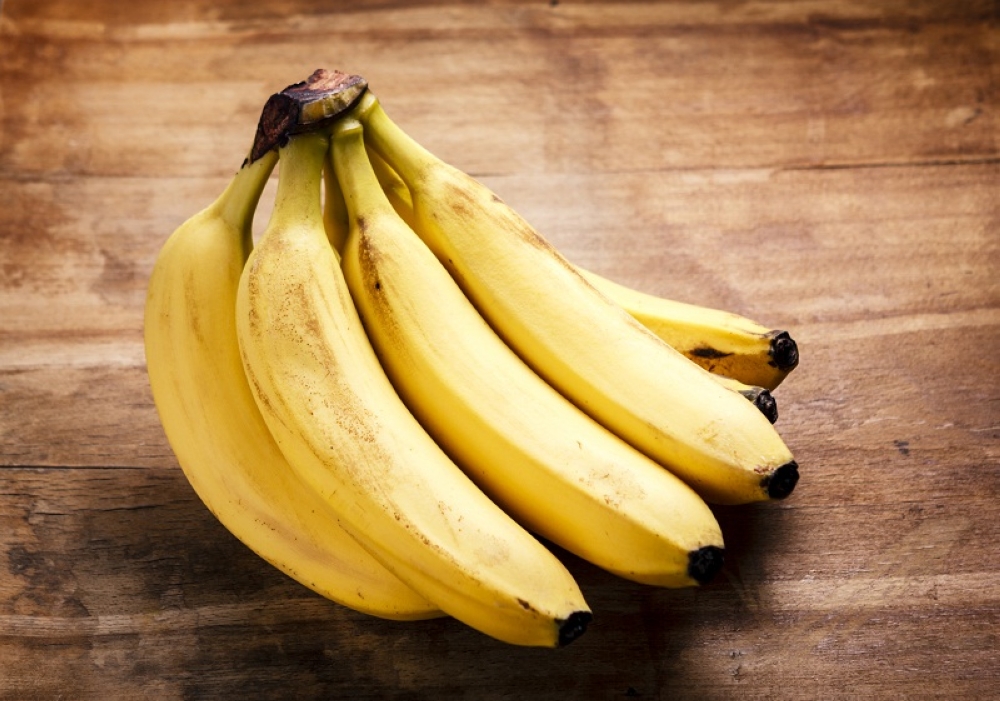SEPTEMBER 2 — Bananas and plantains (Musa spp.) are not just tropical treats; they are essential staples in many parts of the world.
As the most exported fruit globally and the fifth most produced food crop in developing countries, their importance to both local and global economies cannot be overstated.
The world’s annual banana production reaches about 155 million tonnes, with a significant portion grown by smallholder farmers.
However, this enormous production comes with a challenge — massive amounts of banana waste, particularly from plant stems, are left unused.
Yet, recent research is showing that this waste might hold the key to addressing one of the banana industry’s most pressing issues: disease management.
Fusarium wilt, also known as Panama disease, is a deadly threat to banana crops worldwide. Caused by the soil-borne fungus Fusarium oxysporum f. sp. cubense (Foc), this disease has caused substantial losses in banana production, particularly with the emergence of the Tropical Race 4 (TR4) strain.
Foc infects banana plants by penetrating the roots and spreading through the plant’s vascular system, leading to severe wilting and yellowing of leaves, and eventually causing the plant’s death.
The devastation caused by this disease is immense, with the TR4 strain responsible for wiping out nearly 45 per centof global banana production, severely affecting the Cavendish cultivar, which dominates the global banana market.
In Malaysia, the impact of Fusarium wilt has been felt keenly, with the Berangan (AAA) cultivar being particularly vulnerable to TR4. Over the past five years, banana production in Malaysia has declined from 34,894 hectares in 2017 to 26,213 hectares in 2021, largely due to the spread of this disease.
Smallholder farmers, who form the backbone of the banana industry, are especially hard hit, as they lack the resources to effectively combat the disease and mitigate its impacts on their livelihoods.

Currently, one of the primary methods used to manage Fusarium wilt in bananas involves chemical fungicides. However, these fungicides are often ineffective against this resilient soil-borne pathogen, which has developed resistance over time.
Moreover, the use of chemical fungicides raises environmental concerns, particularly in terms of soil health and the potential impact on non-target organisms. As such, there is a pressing need for alternative solutions that are both effective and environmentally sustainable.
This is where the potential of banana waste comes into play. Researchers have begun to explore the use of banana plant stems, which are typically discarded, for the biogenic synthesis of metal nanoparticles, such as silver nanoparticles (AgNPs) and zinc oxide nanoparticles (ZnONPs).
These nanoparticles have demonstrated significant antifungal properties, making them promising candidates for use as biopesticides in managing Fusarium wilt.
AgNPs, in particular, have been the focus of much research due to their potent antimicrobial effects. Traditionally, AgNPs have been synthesised using various medicinal plants, but recent studies have shown that banana plant waste can also be used to produce these nanoparticles.
The process of synthesising AgNPs from banana stems involves using plant extracts to reduce silver ions, resulting in the formation of nanoparticles with powerful antifungal properties.
This method not only provides a use for banana waste but also offers a more environmentally friendly approach to nanoparticle synthesis, as it avoids the use of harmful chemicals.
Similarly, ZnONPs have emerged as another promising option for biopesticide development. Zinc oxide is recognised as safe by the United States Food and Drug Administration, and its nanoscale form has shown higher biocompatibility compared to other nanoparticles.
ZnONPs have been studied for their ability to control various plant pathogens, and their application in managing Fusarium wilt is a natural extension of this research.
The potential of ZnONPs lies in their ability to inhibit fungal growth by damaging the cell membrane of the pathogen, thereby preventing the spread of the disease.
Despite the promising results seen in laboratory studies, the challenge now lies in translating these findings into practical applications in the field.
While numerous studies have investigated the use of nanoparticle-loaded insecticides, fungicides, and herbicides, only a few have progressed to field trials.
It is essential that future research focuses on testing these nanoparticle-based biopesticides on actual crops under real-world conditions.
sField trials are necessary to evaluate the effectiveness, safety, and economic viability of these biopesticides, as well as their impact on the environment and non-target organisms.
The potential benefits of using banana waste to develop biopesticides are significant. For smallholder farmers, who often struggle with the high costs of chemical inputs, utilising waste materials from their own crops offers a cost-effective and sustainable solution.
Moreover, by turning what was once a waste product into a valuable resource, this approach could contribute to a more circular economy within the banana industry, reducing waste and promoting environmental sustainability.
As the global banana industry continues to grapple with the challenges posed by Fusarium wilt, it is crucial to explore all possible avenues for disease management.
The use of banana waste for the biogenic synthesis of nanoparticles represents a promising strategy that could help safeguard banana production while also addressing the issue of agricultural waste.
By raising awareness of this innovative approach and supporting further research and development in this area, we can move towards a future where banana waste not only serves as a solution to one of the industry’s biggest problems but also enhances the sustainability and resilience of banana farming worldwide.
* Dr Yusmin Mohd Yusuf is an associate professor at the Institute of Biological Sciences, Faculty of Science, Universiti Malaya, and can be reached at [email protected]
** This is the personal opinion of the writer or publication and does not necessarily represent the views of Malay Mail.





















